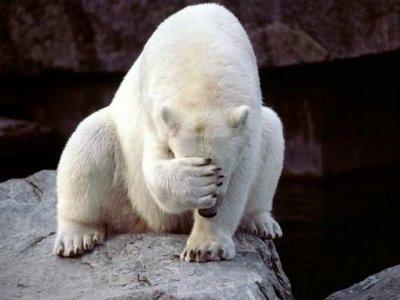A lot of authors who are smarter than I am have written some brilliant protests against the newly-launched Clean Reader – an app that replaces “naughty language” in books with “less objectionable” words and phrases. Introductions to the debate are available at The Guardian and NPR. Author Joanne Harris led the charge on her blog, but other literary giants like Margaret Atwood and Chuck Wendig have also joined the fray. If you’re someone who is offended by strong language, I recommend avoiding Wendig’s blog, which is brilliant, but does tend to turn his corner of the internet a little blue.
Arguments against the app include:
1) Its questionable legality, as it both modifies an author’s work without his or her consent, and then profits from the modification
2) Its adulteration of an artist’s vision
3) Its substitution of words that are not equivalent in context, altering the author’s meaning
4) Its immorality as a form of censorship
5) Its presumption that the writers of the app know what’s objectionable to everyone, and its substitution of a particular world view which, to many, may be just as offensive
6) Its argument that any one person has the right to decide what others should read
All of those points are valid and important, and if you’re interested in censorship issues, I urge you to google some of these articles for more info. As a children’s author, my objection to Clean Reader comes from a slightly different direction.
The creators of Clean Reader decided to create the app when their daughter mentioned being disturbed by some of the language in a book she was reading for school. But instead of talking to her about her concerns, and engaging in a meaningful discussion about language and how the words we use can impact others, they decided the best solution was to protect her — and a whole lot of other people — from seeing those words in any other book.

The idea that we can protect children from exposure to the darker aspects of our human reality is akin to the idea that there is privacy on Facebook: it’s just not true. As fellow children’s author Alma Fullerton has said, kids encounter things every single day that adults would never let them read about. But books are the safest place for these encounters to occur, and books are a place where kids who’ve had any kind of traumatic experience – be it giving a speech in class, exposure to strong language, or something much much worse – can explore their feelings about what they’ve encountered.
Most critically, books are a jumping off point to a larger conversation, one that kids can and should be having with the most important adults in their lives.
As a children’s science writer, part of my job is presenting serious subjects to kids – the social consequences of obesity, use of animals in scientific research, and yes, when it comes to Forensic Science, even rape and murder. And I promise you, I think very carefully about every aspect of that presentation, from the content I choose to highlight to the words and phrases I use to express these challenging ideas. I do so because I have a responsibility, not only to scientific accuracy, but to give kids the facts and the context they will need to negotiate an often dark and scary world.
I know that, while Forensic Science has an 8th-grade reading level, not every 8th grader is ready for the content in the book. But I also know that every 8th grader is a unique combination of gender, cultural and religious background, home life and experience, reading skill and emotional maturity. And I know that all children needs a range of reading options so that they can decide for themselves – with the help of the grown ups who know them best – what they are ready for.
Clean Reader doesn’t get to override my authorial choices with a sloppy find and replace function. And it definitely doesn’t get to override a reader’s, or that reader’s parents’, right to choose their books for themselves.
Have you been following the Clean Reader debate? What are your thoughts on censorship, of books and other forms of art? What content and language issues do you consider when choosing books for yourself or your kids?
So, what you’re saying is that we need to censor that which our children read, and as an added bonus, dumb it down a shade or two, because when the words are written on paper, our innocent children can’t handle it? But, a PG-13 movie today would have been rated R when I was a kid. It would seem that we’re moving one way with censorship where the children must use their own creative imagination to conjure up that which they are reading – offensive words and all; but turn on the TV, and it’s there in living colour for all to enjoy, no work or thought to enjoy? Well, burn the books I say! Anyone for “Game of Thrones”?
There really needs to be a sarcasm font, and I feel we should name it after you. 🙂
I totally agree. Speaking just from my own experience, when I read something I wasn’t ready for, half the time I didn’t even recognize it – only when re-reading the book later did I understand what the words or the content of the scene actually meant. But when I watches something on TV or at the movies, there was no protective filter – there it was, no way to deny it. Remind me to tell you someday about the trauma of watching A Handmaid’s Tale at a relatively young age!